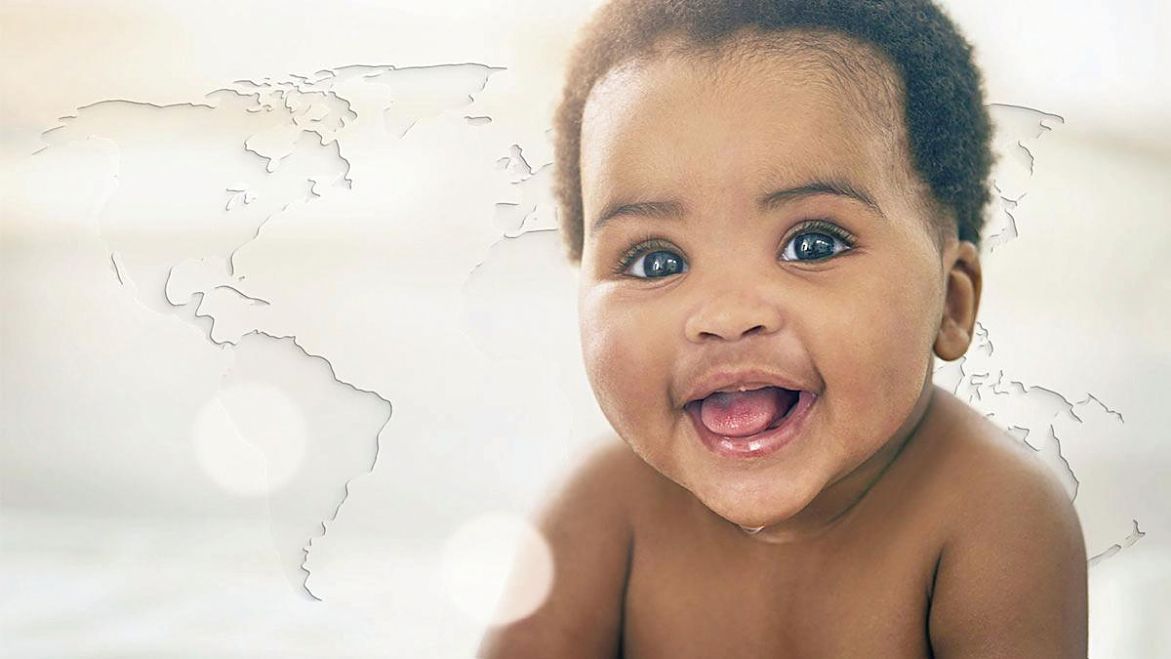NEWBORN SCREENING: SAFEGUARDING BABIES' HEALTH

BY PETRA FURU
TESTING 123: Newborn screening is pivotal for identifying conditions in all babies, regardless how healthy they seem.
Newborn screening can prevent hundreds of thousands of instances of physical and mental disabilities and even deaths.
WHAT IS NEWBORN SCREENING (NBS)?
When a baby is born, a healthcare professional will administer a simple heel prick to collect a blood spot sample, which typically occurs 24 to 48 hours after birth. The dried blood spot (DBS) card is then shipped to a lab where it can be punched into smaller specimen samples to undergo various sample prep processes, then ultimately be processed by different technologies at a specialized NBS lab. Depending on the country/region of the birth and the family's option, the scope of the screened conditions may vary. However, a couple of the most common diseases that are universally screened for include:
- Congenital hypothyroidism (CH) is defined as thyroid hormone deficiency, which can lead to irreversible neurological deficits. as well as poor appetite and breathing problems.1 The overall incidence of CH ranges from 1 in 3,000 to 1 in 4,000 live births, with variation worldwide among different ethnicities.
- Phenylketonuria (PKU) is caused by a change in the phenylalanine hydroxylase (PAH) gene that can quickly cause infants to exhibit irritability, posturing, increased deep tendon reflexes, a peculiar "mousy" odor and vomiting.2 Approximately 1 in 12,000 Caucasians are born with PKU.
Beyond the disorders above that are more commonly screened for globally, there is momentum to expand screening for other rare diseases, at the time of birth. In some instances, states and countries are just beginning to build these disorders into their newborn screening programs:
- Spinal Muscular Atrophy (SMA) is a genetic disorder that affects approximately 1 out of every 10,000 people.3 Most cases of SMA occur when a segment of a gene called SMN1 is missing. This gene is primary responsible for making survival motor neuron protein, which is required for maintaining normal, motor neuron function. SMA can affect a baby's ability to swallow, breathe, sit, and walk. However, without early detection and treatment, SMA can cause premature death.
- Duchenne Muscular Dystrophy (DMD) is a genetic disorder characterized by progressive muscle degeneration and weakness due to the alterations of a protein called dystrophin that helps keep muscle cells intact.4 In Europe and North America, the prevalence of DMD is approximately 6 per 100,000 individuals. The disease primarily affects boys, but in rare cases it can affect girls. Muscle weakness is the principal symptom of DMD.
- Mucopolysaccharidosis type II (MPS II) is a rare inherited lysosomal storage disease, mostly found in boys (also recognized as Hunter syndrome), in which the enzyme is missing or the body does not have enough of an enzyme needed to break down long chains of sugar molecules, called glycosaminoglycans (GAGs).5 As a result, the molecules build up in different parts of the body and cause damage that leads to various symptoms, between the ages of 18 months and four years, including coarsened facial features, such as: full lips, rounded cheeks, and a broad nose, an enlarged tongue and vocal cords. Many other organs and tissues can become enlarged with MPS II, including the head, liver and spleen, while growth for children with MPS II usually slows by the age of 5.